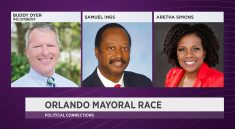Orlando Nexus Daily – It began as a popular idea pitched during a public forum late last year. The proposal seemed simple at first: a comprehensive expansion of affordable housing units within Orlando’s rapidly growing urban corridor. But what looked like a solution to rising rents and homelessness has quickly escalated into a full-blown fiscal debate that could alter how the city allocates its entire budget moving forward. This Orlando local policy budget controversy isn’t just about construction costs or zoning. It’s about competing visions for the city’s future, clashing priorities between departments, and the looming question of how far local government should go to solve problems that intersect with state and federal responsibility.
What’s in the Proposal
The proposed policy centers on a three-phase urban housing development plan. It includes the construction of over 2,000 mixed-income units, long-term rent subsidies for qualifying families, and the creation of a new municipal agency responsible for managing affordable housing access. It also includes funds for retrofitting old city-owned buildings into transitional housing for the unhoused.
On paper, it’s an ambitious move that responds to public concern. Orlando’s population has grown by more than 9 percent in the last four years, and affordable housing supply has not kept pace. The proposal aims to fill that gap. But at what cost?
According to budget analysts, implementing the full policy as written would cost the city upwards of $410 million over the next six years. That’s nearly 18 percent of the current city budget, not including maintenance, enforcement, and future expansion.
Where the Budget Conflict Begins
The biggest concern among city council members and residents alike is that funding this policy may require cutting into other key areas. Several proposals on the table include diverting funds from public park renovations, slowing road improvement projects, and freezing hiring for certain municipal departments like sanitation and youth recreation.
Some public safety advocates fear that police and fire services may also face budget strain if the policy is rushed into effect without a staged financial rollout. Meanwhile, transit advocates argue that the city cannot afford to expand housing without also investing in bus and rail systems to support it.
The result is a brewing storm of trade-offs that has fractured usual political alliances on the council. Progressive members support the moral urgency of the plan. Moderates want a phased version. Fiscal conservatives are calling it reckless.
Residents Are Taking Sides
At recent community town halls, the policy has become the top topic of discussion. Some residents see the initiative as a necessary step toward long-overdue equity. Others fear a repeat of past projects that ran over budget and failed to deliver promised outcomes.
In neighborhoods like Parramore and West Colonial, many renters support the plan, citing skyrocketing prices and displacement pressures. In more suburban districts, property owners express concern about increased taxes, traffic, and neighborhood density changes.
This grassroots division is now feeding into Orlando’s broader political climate, especially as mayoral candidates take positions on the plan ahead of the 2025 election cycle.
Read More: Why Everyone Is Wrong About the Future of Social Media
The Economic Ripple Effect
Economists watching the debate say the proposal represents more than a single policy shift. It is a signal of how Orlando is preparing for long-term growth. If passed, it could establish a model for other mid-sized American cities struggling with housing and affordability.
But if not executed with financial foresight, the ripple effects could be severe. Orlando’s bond rating, capital improvement schedules, and even public-private partnerships could be impacted by how the city chooses to fund or delay this plan.
Investors in regional development are watching closely. So are advocacy groups and think tanks focused on urban innovation. In short, the stakes are higher than they appear on paper.
What Happens Next
The city council is expected to vote on the policy framework within the next two months. Amendments are still being introduced daily, ranging from a scaled-back pilot version to calls for a public referendum. Public pressure is mounting as petitions circulate both in favor and in opposition.
City budget directors are preparing revised scenarios and potential revenue offsets, including property tax adjustments, municipal bonds, and private investment models.



